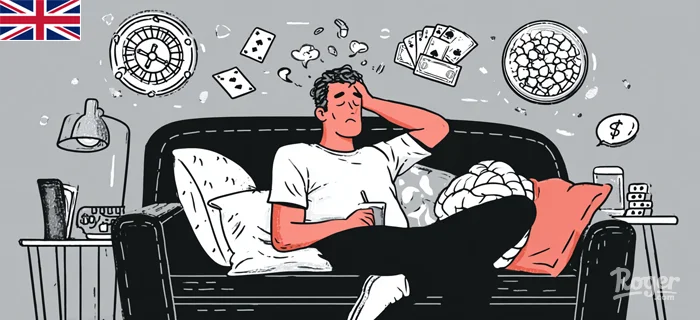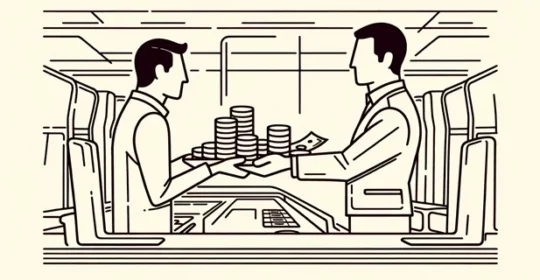You should be thrilled when you win at a casino, but suppose you are told your wins will not be paid? Whilst not common at fair gaming sites, knowing the reasons why payments are withheld or refused can help avoid disappointment and allow you to gamble at fair gambling sites.
Table of contents
Legitimate verification requirements
The most common reason for payment delays is identity verification procedures. Statutorily authorised online casinos must verify your identity before withdrawing significant amounts of money, typically through Know Your Customer (KYC) procedures.
You will be asked to present a valid passport or driving license, the latest utility bill as proof of address, and in some instances, proof of payment method.
This is done to stop money laundering and fraud and protect the casino and honest players. It's frustrating when you do want your winnings, naturally, but these checks are a good sign that you are playing with a legitimate operator in the first place.
? Most checks will take 24 to 72 hours, but first checks will be a bit longer.
Bonus terms and wagering requirements
Others experience payout challenges because they do not fully understand bonus terms and conditions. When you receive a welcome bonus or free spins, you often have to wager the bonus amount multiple times before you can cash out winnings.
Wagering requirements range from 20x to 50x the bonus.
For instance, if you are given a £100 bonus that is 30x wagered, you will have to bet £3,000 before the winnings associated with the bonus can be withdrawn. Some games also pay out unequally to these, slots typically counting 100% but perhaps table games 10% or less.
Maximum withdrawal limits
Some other casinos have varying monthly and daily withdrawal limits. These will be significantly different depending on whether you are a VIP player, your payment method, and the casino's policy.
A typical player will have a daily limit of £2,000-£5,000, whereas VIP players will have much larger limits.
If you've won a large jackpot, don't anticipate seeing it all immediately. Large jackpots are usually paid in instalments over several months. This is a cash management tool for casinos and is perfectly legal, provided it is clearly laid out in their terms and conditions.
Suspected fraudulent activity
Casinos use advanced surveillance systems designed to spot unorthodox betting patterns or fraud patterns. ? If their software identifies your account as suspicious, they will freeze your winnings temporarily pending investigation.
This can occur when you are placing bets in a manner they regard as advantage play, placing amounts considerably higher than your normal betting capacity, or if they suspect you have duplicate accounts.
Although legitimate players might find this intrusive, these measures are being implemented to protect legitimate customers from fraud and maintain the integrity of the gaming system. As long as you play honestly, any question should be in your favour.
Technical glitches and game malfunctions
Sometimes, technical issues can result in disputes over payouts. Technical issues with a slot machine or internet-based live dealer game during play can result in the voiding of related bets and payouts by the casino.
Most of the legitimate operators will probe such situations thoroughly and pay reasonably when technical shortcomings happen on their part.
Computer glitches are especially annoying with online casinos, with network issues or server crashes potentially impacting game results. Honest casinos will have proper processes for dealing with these types of incidents and will lean towards favouring fairness to the player.
Choosing reputable casinos
The easiest solution to avoid payout problems is to choose established, properly licensed casinos in the first place.
? Choose operators licensed by reputable regulatory authorities such as the UK Gambling Commission, Malta Gaming Authority, or Gibraltar Regulatory Authority.
These authorities have high player protection and fair gaming standards. Such leading 20 online casinos, for example, have built their reputations over a period of many decades and have proper systems in place to make timely, equitable payouts.
Red flags to avoid
Beware of casinos that consistently take an inordinate amount of time to make payments after their published time tables, consistently ask for excessive documentation, or use evasive conditions and terms to negate winnings.
Unlicensed sites are the biggest danger since they are outside the reach of regulation and will simply refuse to pay legitimate winnings.
If you do have valid complaints against a licensed casino, you can complain to their licensing body or third-party dispute resolution centres. This safeguard does not exist with unlicensed operators.
Gaming at reputable, licensed casinos greatly reduces your chances of experiencing payout issues.
When issues do arise, they are easily resolved and in your favour, so you can have what counts most: a great gaming experience and enjoy relishing those winning moments.





